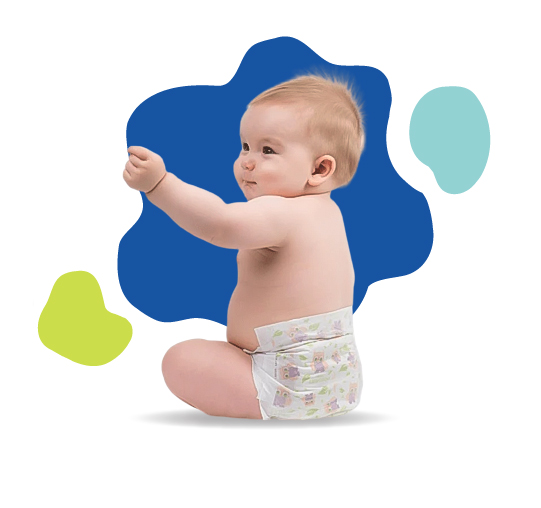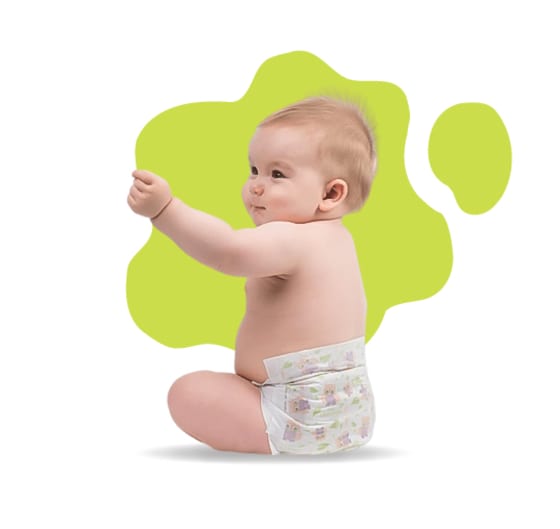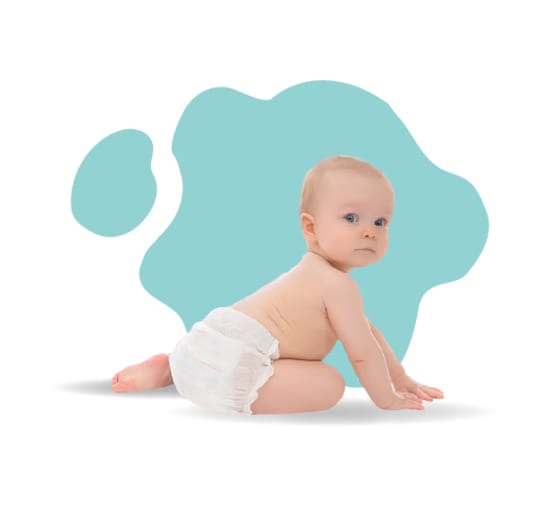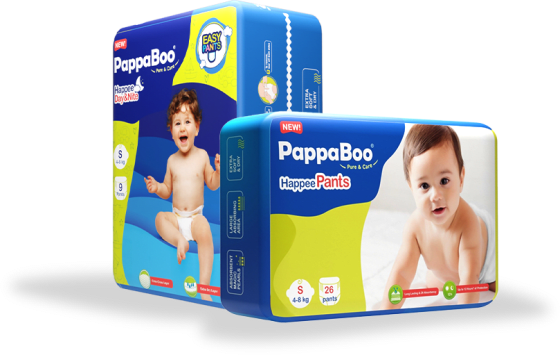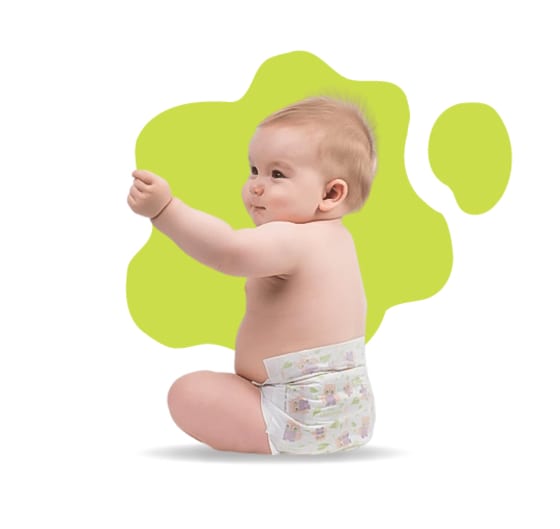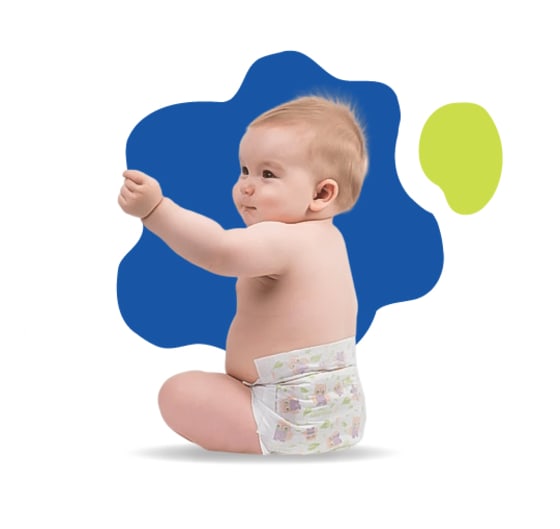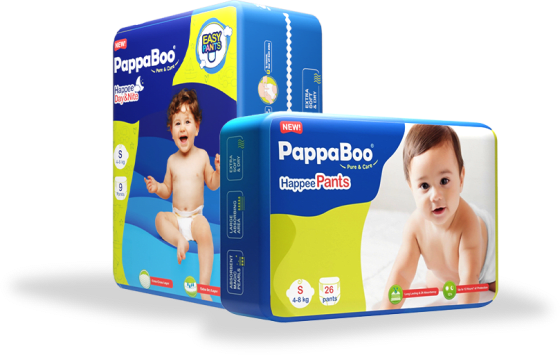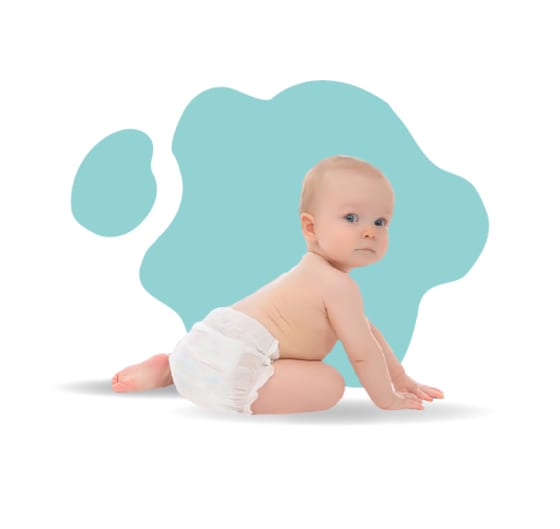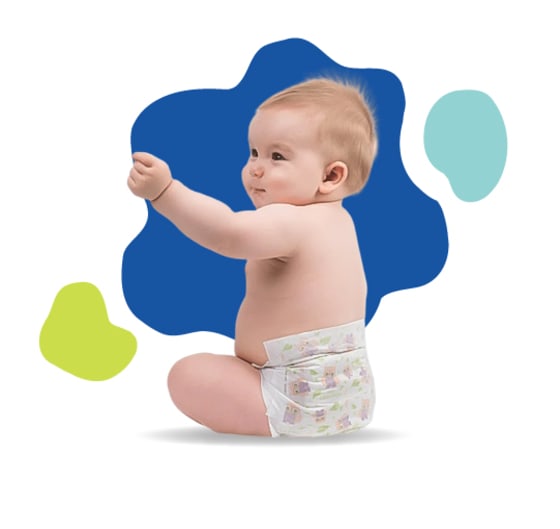Disposable Diapers Cause Diaper Rash: While diaper rash can occur with any type of diaper, including disposable ones, it is not solely caused by them. Diaper rash is typically a result of prolonged exposure to moisture, friction, or sensitivity to certain ingredients. Proper diaper hygiene, frequent changes, and using diaper rash creams as well as rash free diapers can help prevent and alleviate diaper rash, regardless of the type of diaper used.
Cloth Diapers Are Always More Eco-Friendly: While it is true that cloth diapers can be more environmentally friendly due to their reusability, the overall eco-friendliness depends on various factors. Factors such as water and energy usage in laundering, the type of detergent used, and the manufacturing process of cotton diaper for newborn can impact their environmental impact. Disposable diapers have evolved, and many brands now offer eco-friendly options made from sustainable materials or with biodegradable components.
Babies Should Always Be Changed Immediately When They Urinate: While it is important to change wet diapers promptly to maintain hygiene and prevent discomfort, it’s not necessary to change them immediately every single time. Modern diapers, both disposable and cloth, are designed to wick away moisture and keep babies dry for a certain period. Changing diapers at regular intervals (e.g., every 2-3 hours) or when you notice that the diaper is significantly wet is generally sufficient.You can also use newborn overnight diapers during nightime as they would provide the baby a restful sleep.
Bigger Diapers Prevent Leaks: Using a larger diaper size than needed does not guarantee better leak protection. Diapers are designed to fit snugly to prevent leaks, and using a size too big can lead to gaps and increased chances of leaks. It’s important to choose the appropriate diaper size based on your baby’s weight and adjust as they grow.Look for diaper size by age while shopping for diapers.
Diapers Delay Potty Training: There is no evidence to support the claim that using diapers, whether disposable or cloth, delays potty training. Potty training readiness depends on various developmental factors, and each child progresses at their own pace. Introducing potty training when your child shows signs of readiness is key, regardless of the type of diapers they have been using.
It’s essential to consult reliable sources, such as healthcare professionals or parenting resources, for accurate information about baby diapers especially when choosing diapers for new born. Understanding the facts can help you make informed decisions that suit your baby’s needs and your family’s lifestyle.
Disposable Diapers Cause Diaper Rash: While diaper rash can occur with any type of diaper, including disposable ones, it is not solely caused by them. Diaper rash is typically a result of prolonged exposure to moisture, friction, or sensitivity to certain ingredients. Proper diaper hygiene, frequent changes, and using diaper rash creams as well as rash free diapers can help prevent and alleviate diaper rash, regardless of the type of diaper used.
Cloth Diapers Are Always More Eco-Friendly: While it is true that cloth diapers can be more environmentally friendly due to their reusability, the overall eco-friendliness depends on various factors. Factors such as water and energy usage in laundering, the type of detergent used, and the manufacturing process of cotton diaper for newborn can impact their environmental impact. Disposable diapers have evolved, and many brands now offer eco-friendly options made from sustainable materials or with biodegradable components.
Babies Should Always Be Changed Immediately When They Urinate: While it is important to change wet diapers promptly to maintain hygiene and prevent discomfort, it’s not necessary to change them immediately every single time. Modern diapers, both disposable and cloth, are designed to wick away moisture and keep babies dry for a certain period. Changing diapers at regular intervals (e.g., every 2-3 hours) or when you notice that the diaper is significantly wet is generally sufficient.You can also use newborn overnight diapers during nightime as they would provide the baby a restful sleep.
Bigger Diapers Prevent Leaks: Using a larger diaper size than needed does not guarantee better leak protection. Diapers are designed to fit snugly to prevent leaks, and using a size too big can lead to gaps and increased chances of leaks. It’s important to choose the appropriate diaper size based on your baby’s weight and adjust as they grow.Look for diaper size by age while shopping for diapers.
Diapers Delay Potty Training: There is no evidence to support the claim that using diapers, whether disposable or cloth, delays potty training. Potty training readiness depends on various developmental factors, and each child progresses at their own pace. Introducing potty training when your child shows signs of readiness is key, regardless of the type of diapers they have been using.
It’s essential to consult reliable sources, such as healthcare professionals or parenting resources, for accurate information about baby diapers especially when choosing diapers for new born. Understanding the facts can help you make informed decisions that suit your baby’s needs and your family’s lifestyle.
